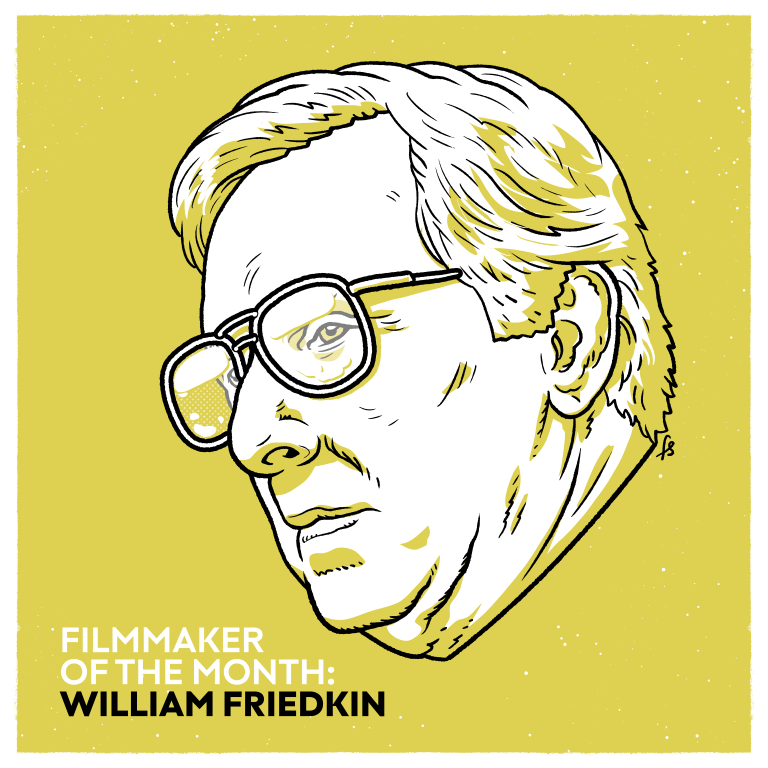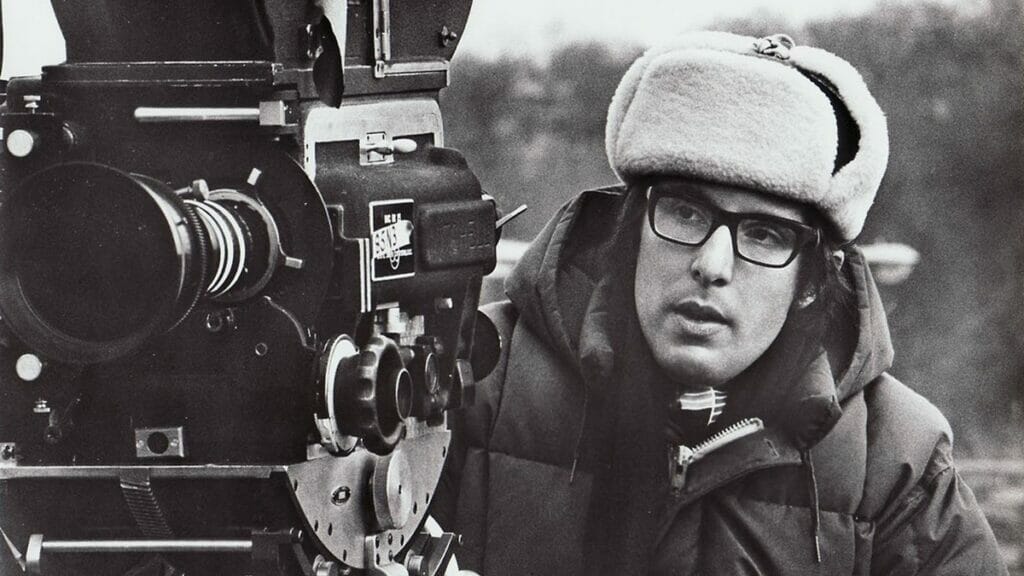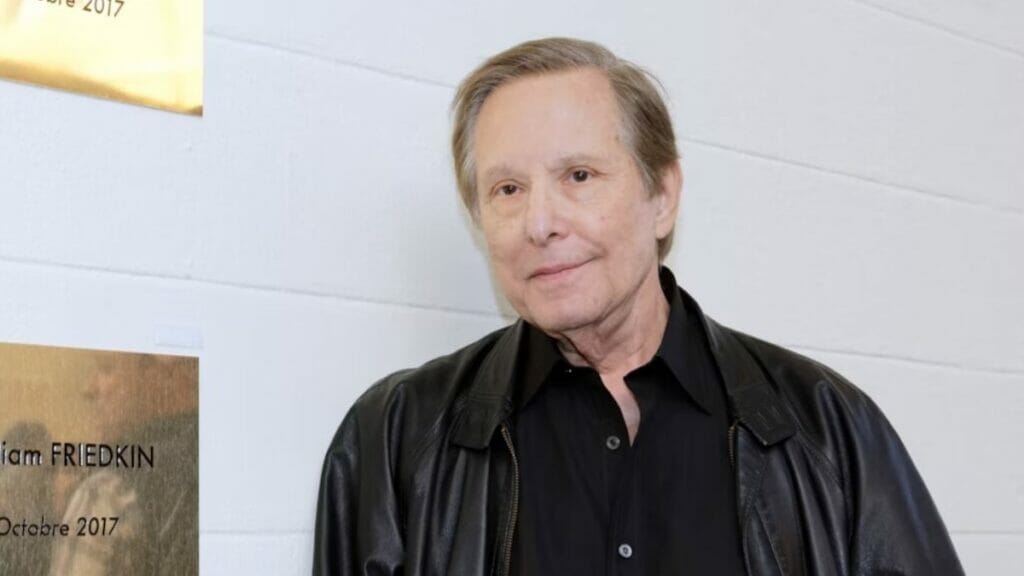Upon his recent passing, we remember the feisty & controversial director & his wildly diverse filmography.

Every month, The Spool chooses to highlight a filmmaker whose works have made a distinct mark on the cinematic landscape.
The funny thing about William Friedkin is that if you ask six people what their favorite Friedkin film is, you’ll get six different answers. These hot and cold responses marked Friedkin’s career overall, one that, for all its faults and stumbles, was never predictable or boring. He had no trademark and refused to be pinned down.
This piece was written during the 2023 SAG-AFTRA strike. Without the labor of the actors currently on strike, the works being covered here wouldn’t exist.
The funny thing about William Friedkin is that if you ask six people what their favorite Friedkin film is, you’ll get six different answers. One (me) will invariably say The Exorcist. Another will say The French Connection and gladly get into fisticuffs over how its iconic car chase beats Bullitt‘s. A third will say it’s To Live and Die in L.A. (which has its own iconic car chase), and someone else will say Jade, but they’re just messing with you.
Point being, Friedkin stubbornly refused to be pigeonholed into either a specific theme or style. Though he dipped into the well of cop thrillers more than once, the gritty sleaze of Cruising doesn’t resemble the slick MTV stylishness of To Live and Die in L.A., which in turn doesn’t resemble the campy nonsense of Jade. Whether directing his own screenplays or the work of others, Friedkin never seemed to have any real rhyme or reason in what he chose as a project, seemingly going with whatever mood just happened to strike him at a given time.
With no connections in show business to get him in the door, Friedkin began his career directing documentaries. Helming an episode of Alfred Hitchcock Presents soon followed. This, somehow, led to his first feature: the Sonny and Cher musical Good Times, which would be a mind-blowing double feature with one of Friedkin’s last films, the gruesome Southern Gothic crime thriller Killer Joe.

Though The French Connection would win Friedkin his only Best Director Oscar, The Exorcist would seal his legacy, both as a filmmaker and as a temperamental taskmaster who put his actors through the wringer in order to get the best reactions out of them, including slapping them, setting up dangerous stunts, and firing a pistol without warning.
By all accounts Ellen Burstyn, who Friedkin was particularly hard on, forgave and even maintained a lifelong friendship with him. Still, a reputation for being difficult to work with would follow Friedkin throughout the rest of his career, with few of his subsequent movies achieving anything close to the cultural impact The Exorcist made. In fact, Friedkin made numerous attempts at recapturing the malevolent magic of The Exorcist with screenwriter William Peter Blatty over the years, including an adaptation of Legion, which Blatty would ultimately direct himself as The Exorcist III. Sadly, none of them came to pass.
The 80s and 90s were a particularly…let’s call it “experimental” period for Friedkin. Starting with Cruising, arguably Friedkin’s most polarizing film, he also tried comedy (Deal of the Century), a lurid courtroom thriller (the little-seen Rampage), folk horror (The Guardian), and a sports drama (Blue Chips). He even dabbled in MTV, directing the deliriously strange video for Laura Branigan’s hit “Self-Control.” Much of what Friedkin put out during this period met with middling to poor reviews and less-than-enthusiastic audiences. Still, Friedkin seemed to take much of it in stride, and even with some obstinance, insisting that Jade was one of his favorite of his films.

After a long string of flops, a 2000 re-release of The Exorcist billed as “the version you’ve never seen” and including previously deleted scenes and a different, more subdued ending, reinstated Friedkin’s place as an icon of 70s film. This seemed to give him some much-needed creative juice. He eventually released the most out-there movie of his career, the 2006 mind-bender Bug. It was the first of two collaborations with writer Tracy Letts, followed by Killer Joe. Both films met with the same kind of “love it or hate it” response as Cruising (and, initially, The Exorcist, described in some early reviews as “a gloating, ugly exploitation picture” and “religious porn”).
These hot and cold responses marked Friedkin’s career overall, one that, for all its faults and stumbles, was never predictable or boring. He had no trademark and refused to be pinned down, even when it was to his detriment.
William Friedkin’s Narrative Directing Filmography
Good Times
The Birthday Party
The Night They Raided Minsky’s
The Boys in the Band
The French Connection
The Exorcist
Sorcerer
Deal of the Century/Brink’s Job
Cruisin
To Live and Die in LA
Rampage
The Guardian
Blue Chips
Jade
Rules of Engagement
The Hunted
Bug
Killer Joe